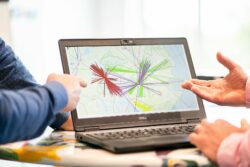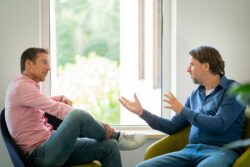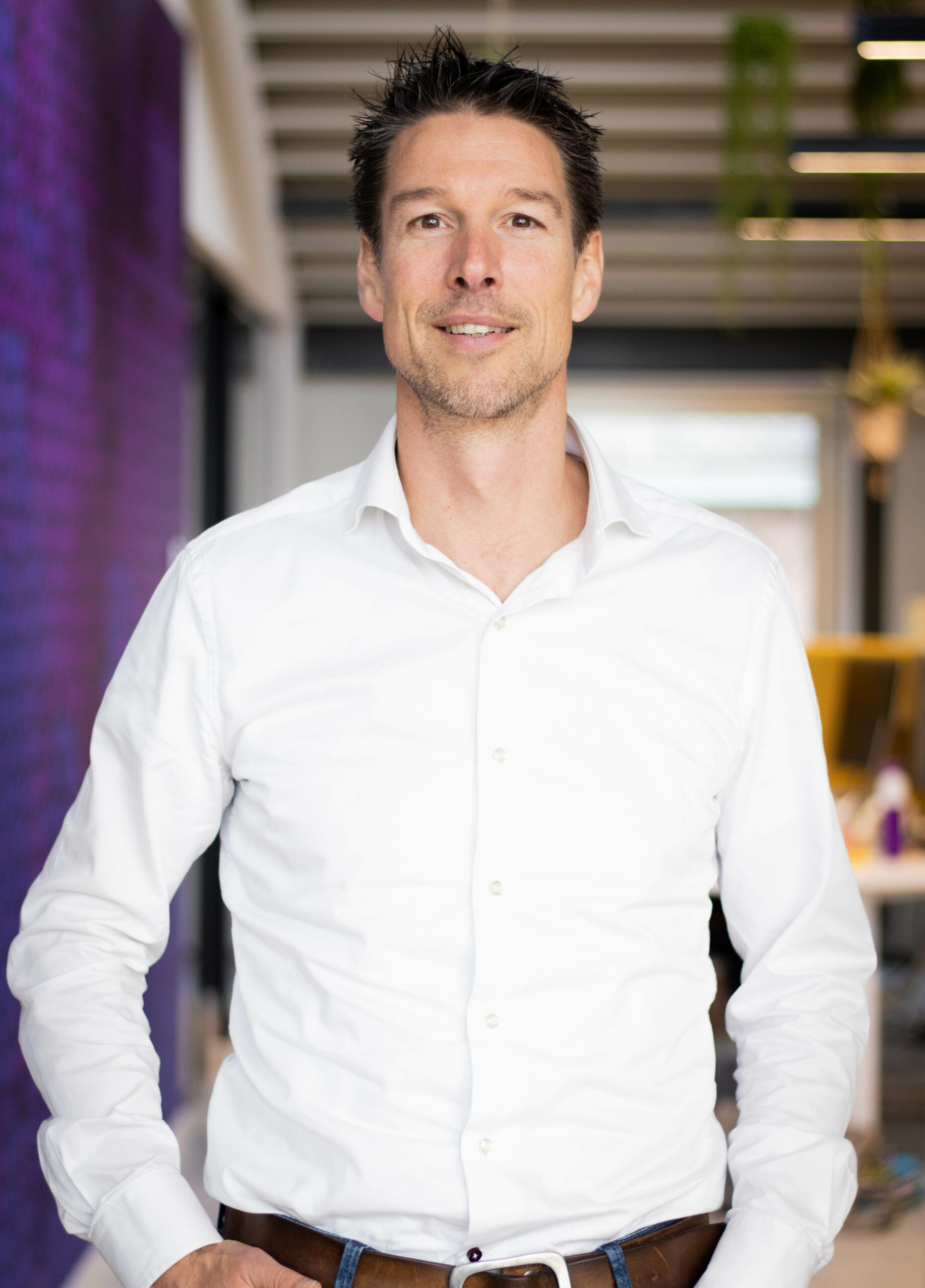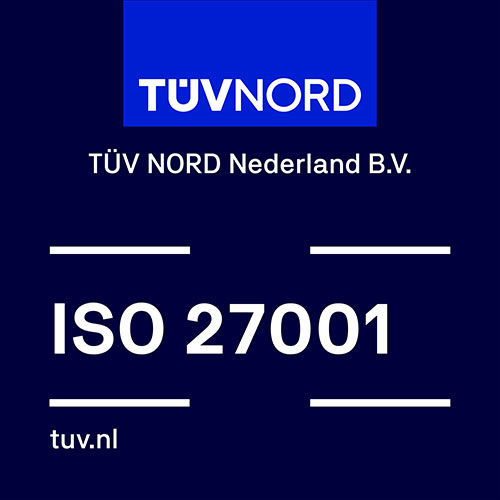Imagine for a moment!
My name is Kos Fourkiotis. I am Manager Innovation at facility service provider CSU and its sister companies Zizo and Tzorg. In my position I help the organization by adding innovations with which we can remain financially and socially successful in the long term. I identify what is happening in the outside world and think about how we can make optimal use of technological and social developments. Part of this is the creation and start of strategic innovation processes. This is also how the contact with Pipple was created.
My name is Joep van den Tillaart and I am a partner at Pipple. Our goal is to make the world a little more beautiful with mathematics and creativity. We do this through smart use of data and the application of data science techniques such as Artificial Intelligence (AI). The basis of AI is that the computer independently performs tasks that normally require human intelligence or interaction. An AI model can read photos and video images and interpret texts. With AI or other data science techniques, we help organizations and governments to improve and accelerate processes. Sometimes solutions are found that our own brain could not have come up with.

What innovation have you developed together?
Kos: “The use of domestic support staff and supervisors of Tzorg is paid for by the Social Support Act. Tzorg therefore works with public money. It is up to us to handle these public funds carefully, and to use them as well as possible to provide optimal care. By providing household support, our clients can continue to live independently for as long as possible. As a result, we can limit the use of heavier care as much as possible.
Tzorg employs nearly twelve thousand domestic support staff and supervisors, who provide help to some sixty thousand people in the Netherlands. Those eleven thousand employees move from home to client, from client to client, and back home. So there are a lot of travel movements there. A small saving on one travel movement saves a lot of time in the sum of the total. Travel time is necessary, but by organizing travel movements more efficiently, the travel time is shorter, so that employees can offer more effective time to help. Pipple is the right party to come up with a solution to this problem through the use of AI”.
Joep: “We started with the question ‘what do you want to achieve, how are you going to apply that in concrete terms in your processes, so that you can capitalise on the value you now have in mind.’ That analysis showed that, for example, there was a lot of information only in the heads of the planners to link the right assistance to the good client, such as allergies, preferences or the level of care. You can’t automate everything that’s in your head, so by capturing all the data, the computer can solve the puzzle without human interaction. We then figured out how we could use this operationally”.
Kos: “The ultimate innovation consists of being able to respond more optimally to the support request that we are reimbursed by the municipalities. As a result, the time saved goes directly to our clients. The great thing about it is also that it is not a one-off exercise, but a structural process. This digital solution ensures that smarter planning is continued in the future.
Joep: “If you look at the total process, then of course you have the piece in which we develop something smart and think together about how it will work. But a large part also consists of change management; ‘How do you get the organisation and clients involved in the new daily routine?’ Everyone had a certain way of working, and a route that was taken daily. At moment X, that has been completely converted. You have to communicate about that. To clients, but also internally. An AI or a machine learning model will only be a success if it is operationally adopted. That is an essential part of the work that we are always keen on. Making something beautiful that is not done with is a shame. Applying a new technology often leads to a cultural change. Hard and soft are therefore interwoven in a beautiful way. High-tech leads to high touch”.

How does AI contribute to solving global challenges?
Joep: “By using smarter models and better optimizations, you spend less time in traffic. As a result, you add value to the deployment of employees, and you save on resources and petrol costs. In fact, you can do that anywhere. Medical care is a good example. Recording information such as which medicines work well with which type of person and who does not, ensures faster intervention and saves unnecessary costs or suffering. AI can play an important role in this in the future, with a huge global impact. With the prediction models we devise at Pipple, we achieve at least 10%, but often 20% in improvement. This can be in travel time, production material, packaging or purchasing. That makes a difference in business, but it also has a positive impact on the earth.
Kos: “We are beta-ficing the alpha world. So social or psychological challenges, thanks to the computing capacity of computers and the right data, are increasingly being analyzed and calculated. This provides insight, for example into how it is possible that in certain areas of the world there is more food scarcity than in others, and it offers the opportunity to make improvements in this. By using AI, we are able to make more informed decisions. It creates more transparency, insight and overview. Data teaches us to better understand reality”.
What will the inhabitants of Brainport and the Netherlands notice from this innovation?
Joep: “AI or artificial intelligence in general provides more connection and intelligence. In the choices you make, you are connected to the world around you. Every company has designed its processes and strategy in a certain way. Nevertheless, you can identify improvements in every organization”.
Kos: “At Tzorg, we see these improvements reflected in more disposable home care by reducing travel time. You can make improvements in every area. As a society or as a country, you have to go along with this to prevent unnecessary use of resources. But AI also leads to more happiness; for example, I can make a better study choice because AI can help me to understand who I am, so that I recognize what my passions and talents are.
My plea is to challenge organizations to try and experiment more to see where AI, smart computing capacity or formulas can help you to make people happier and prevent problems. In the case of Tzorg, this was about reducing travel movements, but that is also possible in other areas. It’s a shame not to do it”.
What is your advice for other organizations and entrepreneurs to get started with AI?
Joep: “We want as many parties as possible, and certainly organizations that do something beautiful in society, to use AI. This can be by taking small steps; Start listening, listening to examples and letting them sink in. To draw, discover, and slowly build this up to the big change. Because the moment you are convinced, you start to take the time, set up functions on it and invest in it. Awareness is a gradual process that takes time. The more complex the change, the more time it takes.”
Kos: “Many of Pipple’s assignments are focused on a need for change; customers have a problem and the people at Pipple come up with the solution. The interesting thing about AI is that companies don’t have to have any problems at all. If Tzorg and Pipple had not entered into this innovation, everyone would have been satisfied. But it is a shame to miss the opportunities of AI, because that need for change is not felt. Therefore, my plea is; Go talk and see what’s possible. Because in no need for change, there is also a lot of value”.
Read the article of Brainport Eindhoven here.

